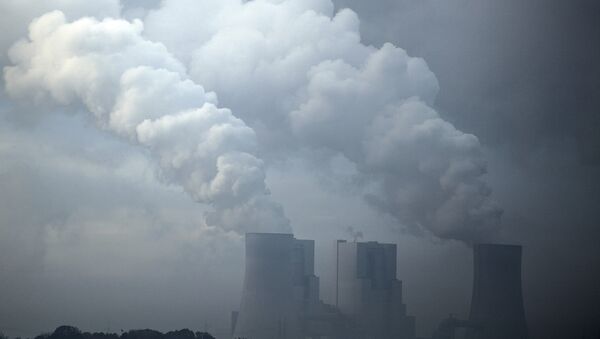On Saturday, the German Coal Commission, which consists of utility companies, scientists and environmentalists, reached a deal after over 20 hours of talks.
"We made it," commission head Ronald Pofalla told reporters in Berlin, adding, "This is a historic effort," cited by The Seymour Tribune.
Germany produces more than a third of its electricity by burning coal. The new deal will allow Berlin to attain its climate change goals for 2030. Currently, Germany's coal plants contribute the highest level of carbon dioxide emissions of any country in Europe.
According to the panel, the equivalent of some $45.6 billion in federal funding over the next 20 years will be required to protect various industries and consumers from increased electricity prices. Additional funds will also go toward overhauling the country's power grid.
"The whole world is watching how Germany — a nation based on industry and engineering, the fourth largest economy on our planet — is taking the historic decision of phasing out coal," said Johan Rockstroem, the director of the Potsdam Institute for Climate Research, The Seymour Tribune reported.
"This could cascade globally, locking in the fastest energy transition in history," he added.
The commission noted that the government will assist in creating around 5,000 new jobs in the states of North Rhine-Westphalia, Brandenburg, Saxony-Anhalt and Saxony where coal mining will become extinct.
"New jobs will be created through structural measures in the coal mining regions," Pofalla said. "We will keep up secure and affordable energy supply and the agreement will lead to sustainable climate protection in Germany."
Environmental organization Greenpeace commended Germany's decision, but cautioned that Berlin's timeline to become coal-free is not fast enough.
"The speed is wrong," said Greenpeace head Martin Kaiser. "Exiting coal by the year 2038 only is unacceptable."


